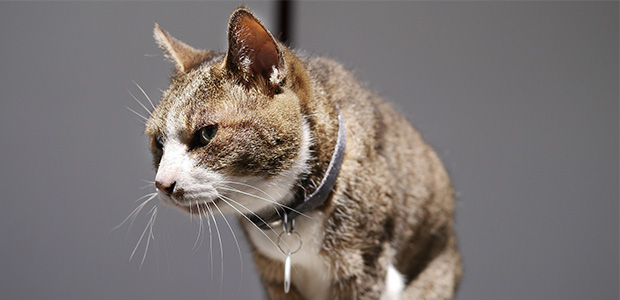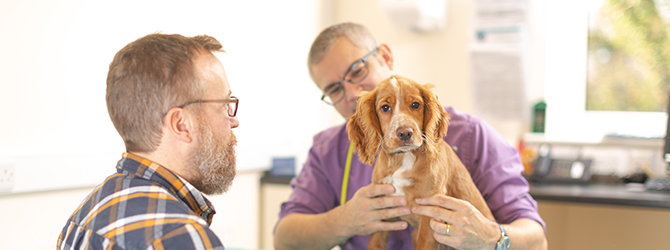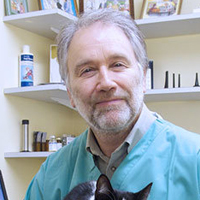'My pet has been referred': a guide to veterinary referrals
First Published: 23/09/2020
Last Updated: 10/02/2023
Some conditions will need the help of a veterinary specialist - this is known as a referral.
Referral practices offer advanced equipment, and their staff are usually specialists. I.e. dermatology, neurology, oncology.
A referral procedure may cost a lot more than a standard first opinion procedure, which is why your pet should be insured as soon as you bring them home. If your pet needs the help of a specialist referral vet, your first opinion vet will arrange this for you.
What is a referral?
Sometimes your first opinion vet will need to seek the assistance of another vet who specialises in a particular area of veterinary medicine or care. This is formally known as a referral.
The process is similar to human health care - you get your routine check-up at the dentist but if you’re suffering from something more complex, you’ll be referred to a specialist dental hospital.
You won’t be able to make an appointment with a referral vet yourself - your first opinion vet will arrange this for you.
Which conditions will warrant the help of a referral practice?
Referral practices offer:
- Surgeons who specialise in complex cases (I.e. cardiology, orthopaedics, soft tissue surgery)
- State-of-the-art equipment for surgery and diagnosis
- Treatments for exotic pets
- A second opinion for unusual symptoms/cases
Are vet referrals expensive?
It’s not uncommon for a specialist treatment to cost a few thousand pounds - this is why it’s so important to have your pet insured.
Most insurance companies will cover the cost of specialist treatments, and both your referring and specialist vet will be able to discuss this with you in more detail.

What happens when you get to the veterinary referral centre?
The process will vary depending on your pet’s condition and how urgent it is.
If your regular vet needs the help of a specialist, they’ll explain this to you, and will ask your permission before they make contact.
Your regular vet will forward your pet’s notes onto the specialist, so they’ll be aware of your pet’s condition before your arrival.
The procedure
Your pet may be kept in the referral hospital overnight, or for a few days depending on how serious their problem is. If you want to visit them during this time, speak to your referral practice and they’ll advise further.
Once the procedure is finished, you’ll be briefed by a member of the team. Your regular first opinion vet will most likely provide your pet’s follow-up care, and they’ll remain your point of contact during the remainder of your pet’s recovery.
If your pet needs multiple appointments with the specialist, your regular vet will make you aware of this and will liaise with you as your pet continues to receive the highest level of care.
Need more info?
For more help and advice on referring your pet or on the referrals process, have a chat with your local first opinion vet.
Find your nearest vet using our Find a Vet page, or speak to a vet online using Online Vets. For more information on visiting a vet click here.


